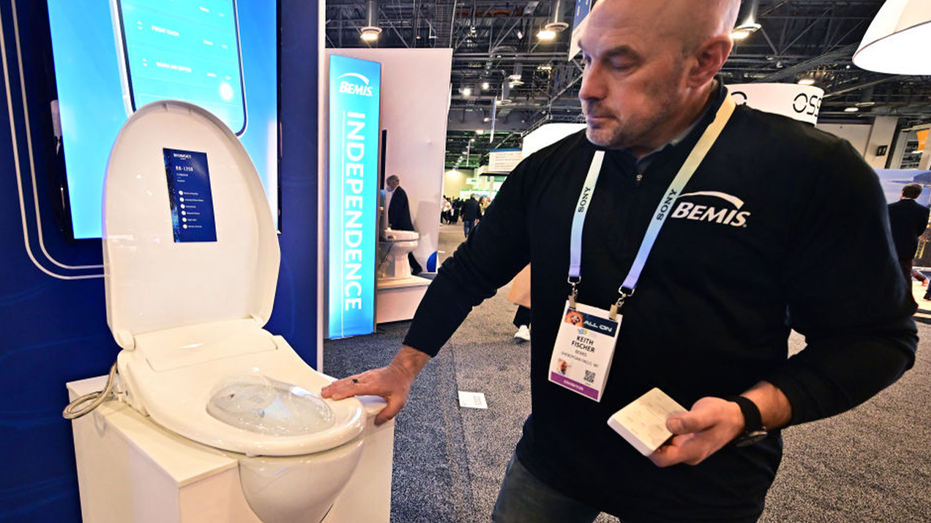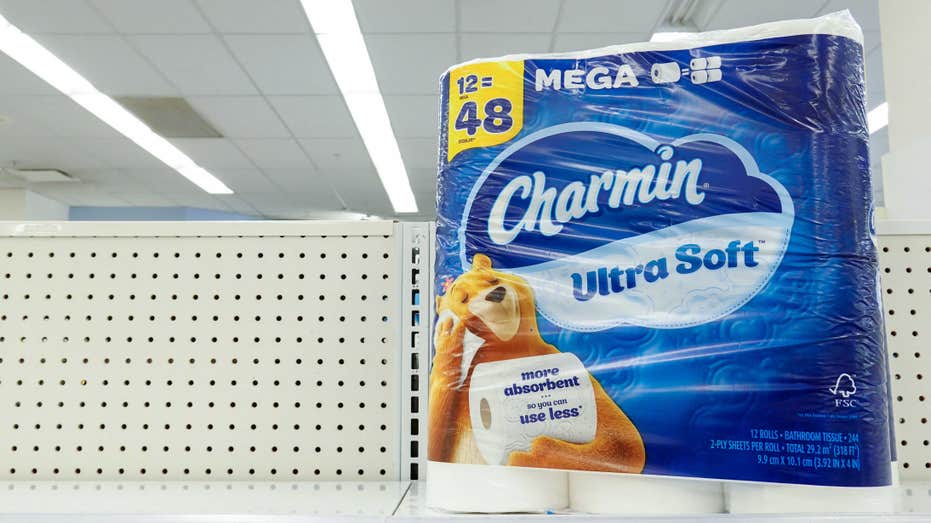US taking the plunge on bidets four years after toilet paper shortage wiped store shelves
According to bidet retailers, a purchasing boom prompted by pandemic-era toilet paper shortages has not slowed
Expect ‘massive shortage’ of toilet paper, other goods: Burt Flickinger
Strategic Resource Group managing director Burt Flickinger on supply chain issues hitting American retailers.
Bidets, those strange toilet-looking appliances one might only encounter on a European vacation, are continuing to experience an industry boom in the U.S. after demand exploded during the COVID-19 pandemic toilet paper shortages.
A new Washington Post report detailed how many Americans scrambled to purchase the restroom appliance during the lockdown in 2020 as an alternative to toilet paper, creating a desire for them that has lingered on.
The piece quoted BidetKing.com founder James Lin, who summed up the COVID-era bidet spree, stating, "The industry here in the U.S. just blew up. You couldn’t get a bidet if you wanted to. We all sold out. … There was a huge scramble to get more."
ARMY VET SAYS PREPPER FOOD COMPANY BOOMING AS MORE AMERICANS PLAN FOR DISASTER IN 2024

A man demonstrates the features of a bidet toilet seat at the 2024 Consumer Electronics Show.
It also noted how new bidet owners have no regrets for having "panic bought" the product, where those who bought workout machines, or new homes do.
The article stated, "Bidets — which clean you up with a stream of water, reducing the need for tissue — certainly weren’t the only items that people waited months for during that strange time. But while many have regretted buying their Pelotons or even their homes, those who installed the bathroom fixture at the height of the Great Toilet Paper Shortage of 2020 are far from remorseful."
The piece cited the experiences of various satisfied bidet owners, whom it described as "true believers, evangelizing to family and friends and trying to help the United States catch up with the rest of the world on bidet use."
Utah resident Rosanne Orgill told The Post that she decided to take the bidet plunge in 2020 after her husband sold her on the idea after traveling to many different countries over the years.
"I just love them now. I just don’t know how people survive without them," she said.
Florida resident Ryan Deitsch, who calls himself an "absolute fan" of bidets now, told the paper that the pandemic made him re-evaluate how his household was doing hygiene.
"Are the things that we’re doing — is that necessarily the right way? The best way? Are there other ways?" he claims he asked himself during COVID. "People really started to rethink parts of their day-to-day. And in the case of myself and many others … we bought bidets," he added.
WASHINGTON DC CVS ONLY SHOWS PICTURES OF TOILET PAPER PRODUCTS ON SHELVES DUE TO RISING THEFT

The boom in the bidet industry in the U.S. was prompted by a COVID-era toilet paper shortage. (REUTERS/Andrew Kelly / Reuters Photos)
Northern Virginia resident Sydney Cano said, "No exaggeration, my life was literally changed. I can’t live without mine now. Realistically, I will never go through the rest of my life without using mine. I have a travel one, so I’m never without it."
The Post noted that the U.S. still lags far behind many other countries when it comes to bidet ownership," though it acknowledged that the U.S. bidet market "appears only to be expanding."
"While just 6 percent of U.S. adults already have a bidet in their home, an additional 41 percent are interested in owning one, according to a YouGov poll," the piece stated.
Multiple bidet sellers are remarking on this new embrace of the product as well. The founder of bidet attachment company, Tushy, Miki Agrawal told The Post she saw a "fivefold" increase in revenue growth in 2020 "that still hasn’t flattened."
"In fact, she says revenue has continued to increase 20 percent year-over-year ever since," the piece stated.
CLICK HERE TO READ MORE ON FOX BUSINESS
Plumbing & Mechanical magazine chief editor Nicole Krawcke told the outlet that the bidet industry will look to market products for elderly people in the coming year.
"Getting something like this in your home soothes the caregiver and also the person they’re taking care of … making it easier for them to go to the bathroom and not have to feel embarrassed about asking somebody for help," she said.




















